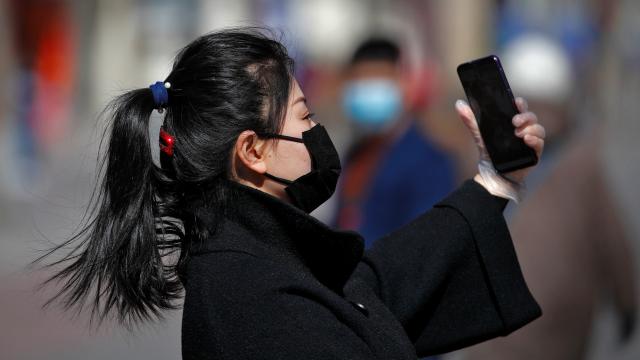Responding to criticism over how it handled the novel coronavirus outbreak, the Chinese government banned words and word combinations like ‘Wuhan,’ ‘Red Cross,’ and ‘Crisis + Beijing’ from popular social media platforms. But China’s social media users have been creatively replacing those words with more obscure phrasing or abbreviations so they can avoid censorship and discuss topics the government deems taboo, Amnesty International reported.
Speaking in code or making up a new language is nothing new for avid social media users in China. The government has a long list of topics it regularly censors on the mainland, most notably anything about the 1989 Tiananmen Square protests. The government also blocks entire websites like Google, Reddit, and Twitch, and even individuals like Chinese human rights activist Liu Xiaobo, from internet searches. Now that COVID-19 has made it onto the list, China’s internet code has evolved again.
The workarounds range from simple to complex, Amnesty International reported. To talk about places like Wuhan and Hubei, the initials ‘wb’ and ‘hb’ are used instead. Panda images represent the domestic security bureau. Red Cross has become ‘red ten,’ since the Chinese character for ten ‘十 Shí’ resembles a cross, and the term ‘F4’ refers to four regional politicians whom many blame for the outbreak, including the governor of Hubei province; the secretary of Hubei’s Communist Party Committee; the mayor of Wuhan; and the party secretary of Wuhan.
But sometimes netizens have to get more creative than that, resorting to entire coded sentences with a deep subtext. “I cannot and do not understand,” for instance, is derived from a leaked police statement from Dr. Li Wenliang, the doctor who was not only punished for warning people about the virus, but who also died from it. (The Chinese government has been working to scrub mentions of him and freedom of speech on social media.) In the statement, police ask him to stop talking about the virus, to which Dr. Li Wenliang said he would. According to the Amnesty International transcription, the conversation went as follows:
“Can you do this?”
“Can.”
“Do you understand?”
“Understand.”
Social media users began posting this exchange as a sentence online, but the government caught on quickly and deleted the posts. However, the sentence, “I cannot and do not understand,” replaced it. Anyone who uses it is not only saying they will continue to talk about the COVID-19 virus, but they will also not be silenced by the government.
If you search for any of those terms on a popular Chinese social media platform like Weibo, you’ll see the coded language in action. And if you run those posts through Google translate, like I did, you’ll find accusations of the Wenzhou Charity Federation staff stealing masks, people in the government using the Red Cross for profit, and calls for the governor of Hubei province to step down. The discourse feels heavy with frustration and helplessness.
China’s government routinely changes what words it allows and doesn’t allow on social media, so any of these alternative terms could be banned at any moment, forcing Chinese users who want to discuss the government’s handling of the crisis online to create a new vocabulary. It can seem futile, but for those who want to avoid being censored, it’s a necessity.
